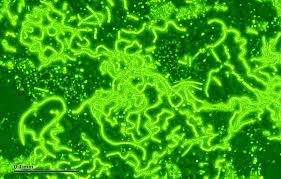Keeping diseases away is an interesting chapter of kerala sslc biology examination.In this section we provide notes,pdf,questions of this chapter as table wise
Modes of transmission of diseases
- By contact
- Contaminated food and water
- Unsterilized equipments
- Vectors
- through body fluids
- through air
BACTERIAL DISEASES
Rat fever (Leptospirosis)
| Pathogen | bacterial disease-Leptospira |
| Mode of transmission | bacteria that comes out through the urine of rat, dog and certain other animals remain alive in stagnant water and moisture,bacteria reach blood through wounds |
| mode of affection | The toxins produced by the bacteria destroy cells and cause disease. |
| symptoms | Severe fever, headache, muscle pain, redness in eyes |
Diphtheria
| pathogen | bacteria Corynebacterium diphtheriae |
| mode of transmission | spreads through cough, sneezing or directly from the infected person to another person |
| mode of affection | Toxins produced by the bacteria cause fever, throat pain and inflammation in the lymph glands of the throat |
| symptoms | ash coloured thick coating in thethroat within two or three days.Gradually brain, heart and kidneys are affected.throat pain |
| prevention | vaccination |
Tuberculosis
| Pathogen | Mycobacterium tuberculosis |
| mode of transmission | When the patient speaks, coughs or sneezes, the pathogens spread into the air and thereby to others. |
| Symptoms | Loss of body weight, fatigue, persistent cough |
| Organs/Body parts Affected | mainly affects the lungs. But kidneys, bones,joints, brain etc. are also affected by this disease |
| Treatment | By administering antibiotics |
| prevention | Vaccine-BCG |
VIRAL DISEASES
AIDS (Acquired Immuno Deficiency Syndrome)
| PATHOGEN | Human Immuno deficiency Virus |
| MODE OF TRANSMISSION | Through sexual contact with HIV infected person From HIV infected mother to the foetus By sharing needle and syringe contaminated with HIV components Through the reception of blood and organs contaminated with HIV |
| METHOD OF AFFECTION | reduces the immunity of the body. |
| treatment | none |
Hepatitis
| PATHOGEN | Hepatitis virus |
| mode of transmission | Disease gets transmitted through contaminated food and water, blood components and excreta of the patient |
| major symptom | Inflammation of the liver,dark yellow colour to the mucus membrane, white portion of the eyes and the nails |
Fungal Diseases
The toxins produced by the fungi cause diseases.
Ringworm
| pathogen | fungi(ring worm) |
| affected part | skin |
| symptoms | manifests as round, red blisters on the skin |
| spread | through contacts |
Athletes’ foot
| pathogen | fungi |
| affected part | the sole of the foot and between the toes. |
| symptoms | itching is the major symptom. Appear as reddish scaly rashes |
| spread | Pathogens enter through the toes when they come in contact with contaminated water and soil. |
Disease caused by parasites[protozoan diseases]
malaria
| Pathogen | -Plasmodium |
| Vector | Female Anopheles mosquito |
| symptoms | High fever with shivering and profuse sweating headache, vomitting, diarrhoea, anaemia, |
Filariasis
| Pathogen- | filarial worms |
| vector | Culex mosquitoes |
| symptoms | The worms stay in the lymph ducts and obstruct the flow of lymph by blocking the ducts. This causes swelling in the lymph ducts. |
–


